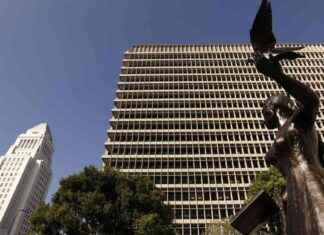The Secretary General of the Atlantic Alliance, Jens Stoltenberg, accelerates the movements and contacts so that Sweden becomes the 32nd NATO country. The great ambition is to complete the process at the Vilnius summit. 40 days left. With the clock ticking down, the former Norwegian prime minister has announced that he will travel “soon” to Ankara to meet with the recently re-elected Turkish president, Recep Tayyip Erdogan, who continues to block the Nordic country’s accession citing national security issues.
The July summit in the Lithuanian capital is projected to be crucial, decisive and historic for the European security architecture. The expectations are very high as are the risks that it ends up ending in a decaffeinated way. It is unlikely that the Atlantic Alliance will dust off the official letter of invitation to join Ukraine in Lithuania. And all eyes to prevent it from being tarnished are already going to get the Swedish flag raised at the headquarters.
Stoltenberg has shown himself “confident” that the process will conclude on time. “I fully anticipate it,” said the US Secretary of State, Antony Blinken, at the end of the meeting that the 31 allied foreign ministers held this Wednesday and Thursday in Oslo. As he passed through Europe, Blinken has taken the opportunity to unlink this process from Turkey’s request to purchase F-16 fighter jets from the US, a request paralyzed in the US Congress.
Allied sources were more cautious these days. The schedule is tight. This month the new Turkish Parliament will be constituted, although an extraordinary session could be called for ratification. Nor has Hungary given its approval to Sweden’s entry, although in Brussels they assume that Víktor Orban, who has not given any reason for the delay, will follow suit once Ankara lifts its veto.
Erdogan holds Stockholm captive for the Nordic country’s historic reception of fighters and refugees from the Kurdish PKK group. Under this ordeal, Sweden has approved a law, which enters into force today, and which toughens the fight against terrorism. “This shows that Sweden is fulfilling the commitments agreed at the Madrid summit and is taking steps to fight terrorism, including against the PKK, which is a terrorist organization,” Stoltenberg said winking at the country from the Bosporus.
DISCREPANCIES ON UKRAINE
The 31 members of the Atlantic Alliance are divided on how to approach security guarantees to Ukraine. The eastern countries step on the accelerator to offer a clear and fast calendar. But in the headquarters the vision of others such as Germany and the United States prevails: under no circumstances can it take place while the war is going on.
The foreign affairs ministers close with this premise that lays the foundation for the Vilnius meeting in the Norwegian capital. Three slogans emerge from it: Ukraine will form part of the Alliance in the future, Russia has no veto on the NATO enlargement process, but the allies will set the pace and pace. Meanwhile, the Ukrainian president, Volodímir Zelensky, continues to push for NATO to give the country an official invitation to join in Vilnius. An almost disposable scenario.
NATO opened the door to kyiv at the 2008 Bucharest summit with a declaration of intent that has never materialized. But kyiv now has the countries of the East on its side. “Ukraine has waited 14 years for NATO’s response and has not received it yet, after two invasions. It is time to sit down and provide clear answers on how to incorporate the country,” said Gabrielius Landsbergis, Lithuanian Foreign Minister. “We clearly support the idea of ??drawing a clear path for Ukraine’s entry into NATO. We have to think about what is the new security architecture for our region. And that is NATO. The policy of gray zones continues and we are seeing the results in Georgia in 2008 and in Ukraine in 2014 and 2022”, agreed Margus Tsahkna, his Estonian counterpart.
For now, the 31 are expected to ratify in Vilnius a “solid aid package” for Kiev through an annual financial assistance macro plan that seeks to modernize the country’s Armed Forces towards the standards required by NATO. But the priority for Ukraine’s allies in the short term is to continue the pace of arms supply in what is already a logistical war, an artillery battle. “The most urgent and the most important task right now is to ensure that Ukraine prevails as an independent sovereign nation,” Stoltenberg concluded.
According to the criteria of The Trust Project






